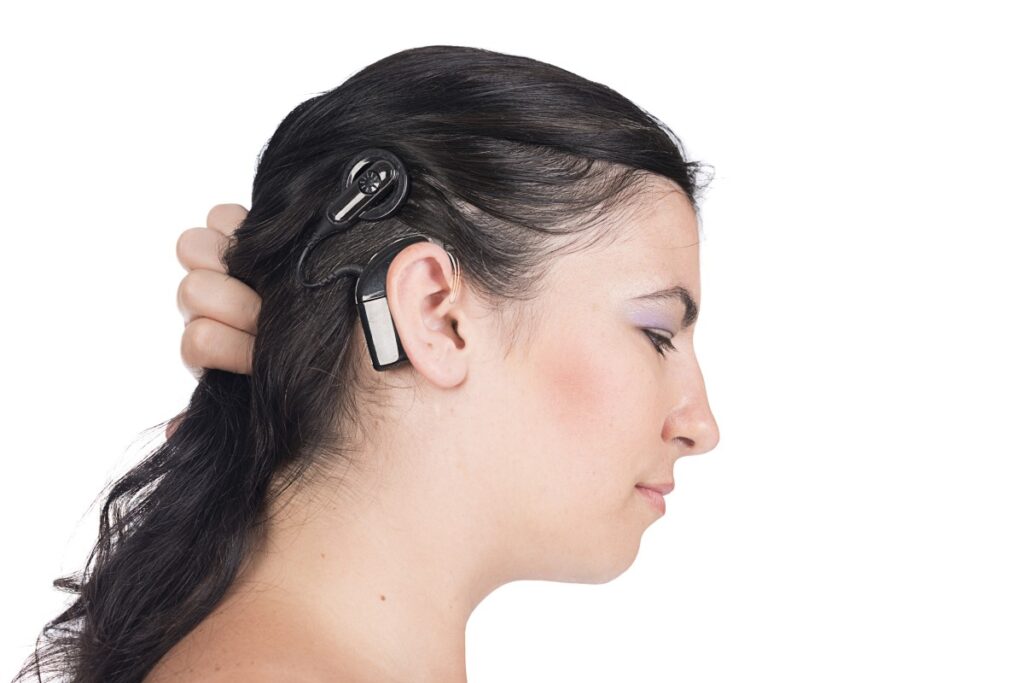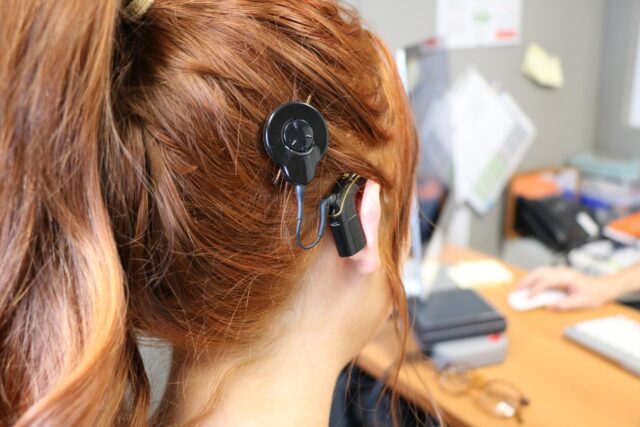If you are hearing impaired, then you will probably be excited by the prospect of an improvement on the traditional hearing aid – but cochlear implants are not the ultimate solution to hearing loss that many people think they are, and it is important to do your research before you make a decision. This article details the advantages and disadvantages of cochlear implants, so that you can make an informed choice and experience the best hearing improvement.
How Do Cochlear Implants Work?

A cochlear implant is an electronic hearing device, with two parts, one external portion that sits behind the ear and one portion which is under the skin. The purpose of the implant is to give a sense of sound to someone who is deaf or hard-of-hearing. Some people will make the mistake of thinking a cochlear implant is the same as a hearing aid, but they are completely different. A hearing aid amplifies sounds to help a damaged ear pick them up, whereas an implant bypasses the damaged part of the ear and stimulates the auditory nerve directly.
Cochlear implants work by sending signals from the auditory nerves to the brain, and the brain then recognizes these messages as sounds. It is not a ‘miracle’ fix that restores hearing completely, but is actually different from natural hearing and takes a while to get used to. However, it is incredibly useful for helping hearing-impaired people notice warning signs and understand other sounds in their environment.
Pros & Cons Of Cochlear Implants
Pros:
Improve quality of life:

For someone with severe hearing loss, a cochlear implant could be life changing, as it will help them gain access to experiences they have never had before. Also, it will be easier for them to achieve some daily tasks. Being able to communicate with others more simply can improve work opportunities and necessary everyday interactions as well.
Makes life easier:
The processes a hearing impaired person has to undertake to carry out daily tasks can be tiresome. So it can be a relief if you are finally able to understand speech without having to lip read, and watch TV without captions.
Childhood development:

One of the major developments that a child or toddler goes through is learning to talk, and this can be difficult or impossible when the child is hearing impaired. Having a cochlear implant could help toddlers learn how to talk more quickly and easily.
Different sounds:
For someone without full hearing loss, cochlear implants can help them to pick up sounds they haven’t heard before, like footsteps and music.
Social life:

Some hearing-impaired people can experience social isolation, as not many other people in society know sign language and are unable to communicate with them properly. Having a cochlear implant may make it easier for hearing impaired people to socialize and make friends with new people.
Cons:
Surgery has risks:

The surgery to attach the cochlear implant is generally safe, but there are some risks, depending on your health and medical conditions. These risks include minor bleeding, dry mouth, dizziness, swelling, facial paralysis, ringing in the ear, and the possibility of the surgery site becoming infected.
Doesn’t completely fix hearing:
There is a chance that the cochlear implant won’t change anything at all, and it could create only partial hearing as well. Technically, cochlear implants only improve your ability to receive and process auditory information.
Expensive:

Most health insurance plans cover cochlear implants, but if you don’t have insurance or your plan does not cover it, then the implants are actually quite expensive. So this may mean they are unavailable if out of your price range.
Maintenance:
Both cochlear implants and hearing aids require regular, ongoing maintenance, and the new implant must be configured and fitted by a qualified audiologist. Some new hearing aid models can be customized and updated by the user, making it a lot easier.
Remove for sport:

Some cochlear implants are waterproof so that you can swim with them in, but with others you need to remove the outer part of the device to bathe or swim. You may have to remove the external part of the device for high-contact or vigorous sports as well.
Are Cochlear Implants Covered By NDIS?
As long as you meet the requirements for NDIS funding, and they decide your request is reasonable and necessary, then cochlear implants are covered by the NDIS. However, if your implant breaks or you lose the outer part of the device, you cannot get it fixed and then apply for funding to cover the cost – you must wait for your request to be reviewed and approved before you buy the new one. As long as your NDIS goals include wanting to participate in water-based sports, then your funding will also cover the Aqua+ waterproof cochlear implants.
Choosing The Right NDIS Provider

When deciding on a disability service provider for your audiology needs, you must make sure you choose an experienced organization that has your best interests at heart. Look for an NDIS registered provider which offers comprehensive audiology services with expert health professionals who can organize your cochlear implant surgery.







